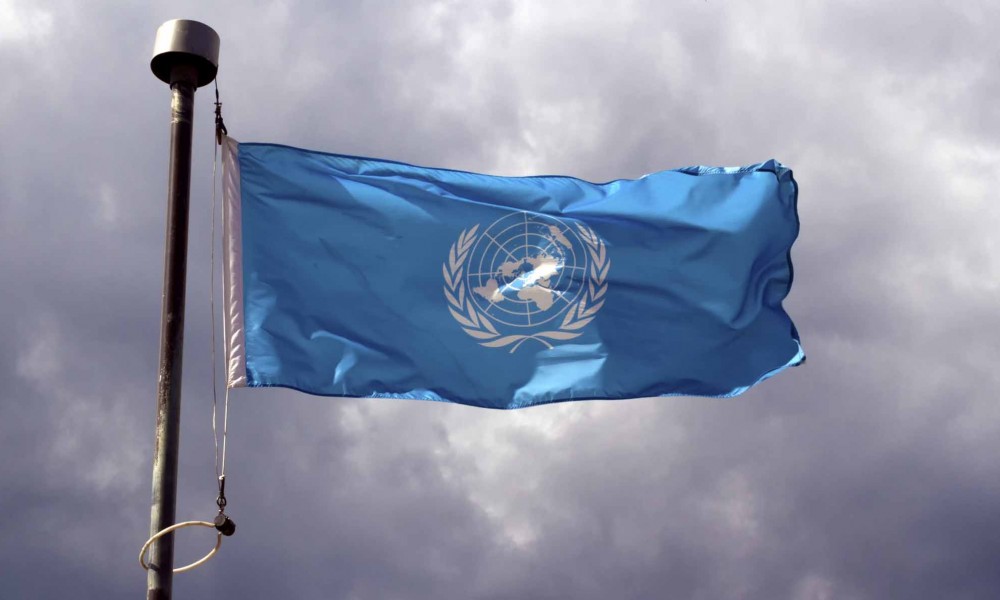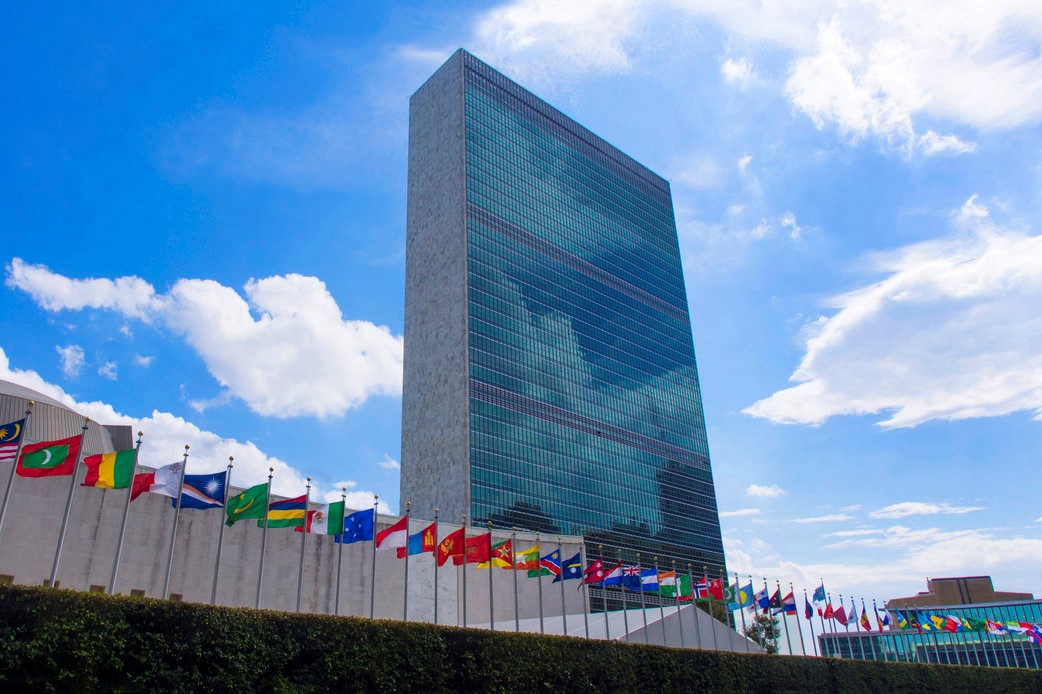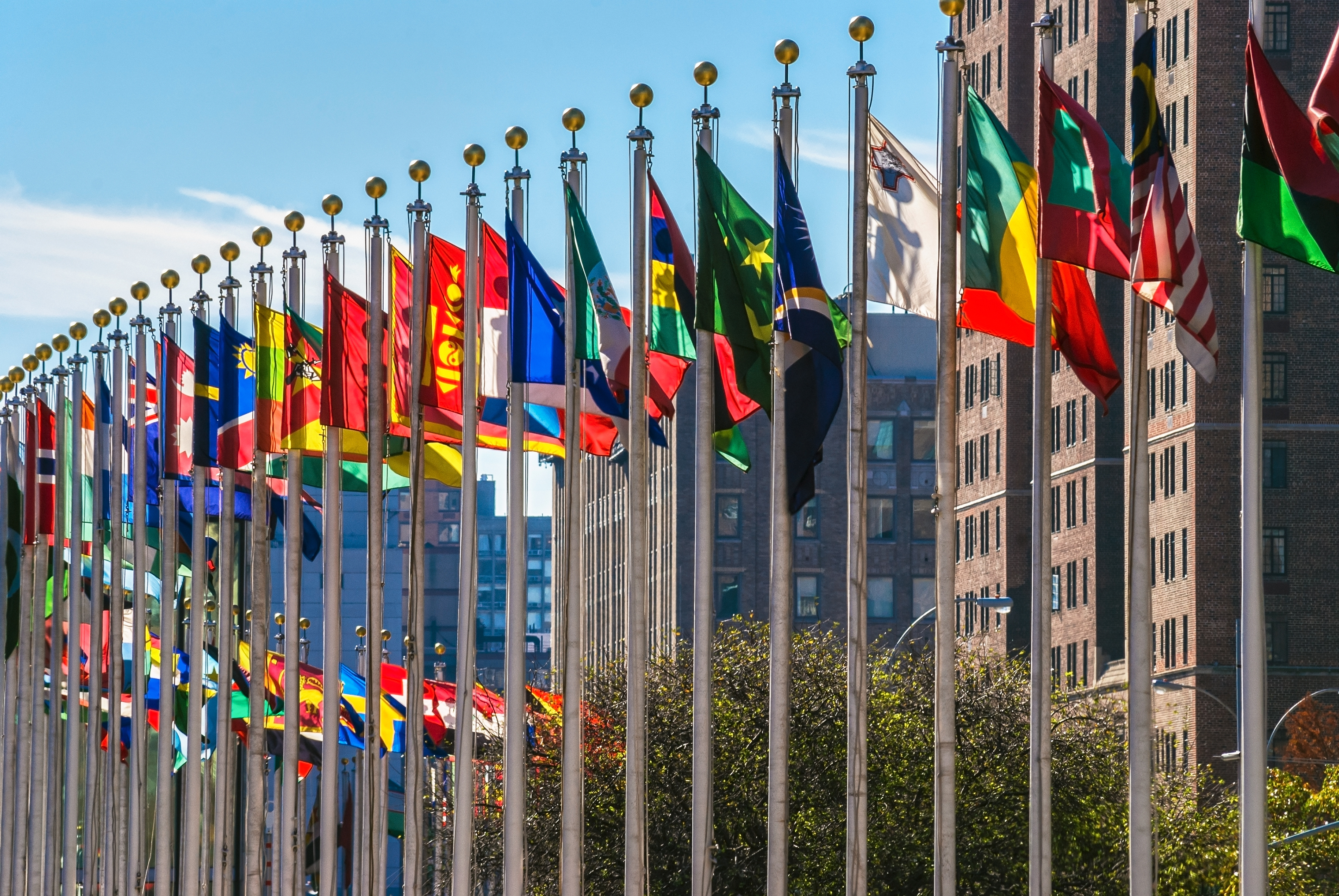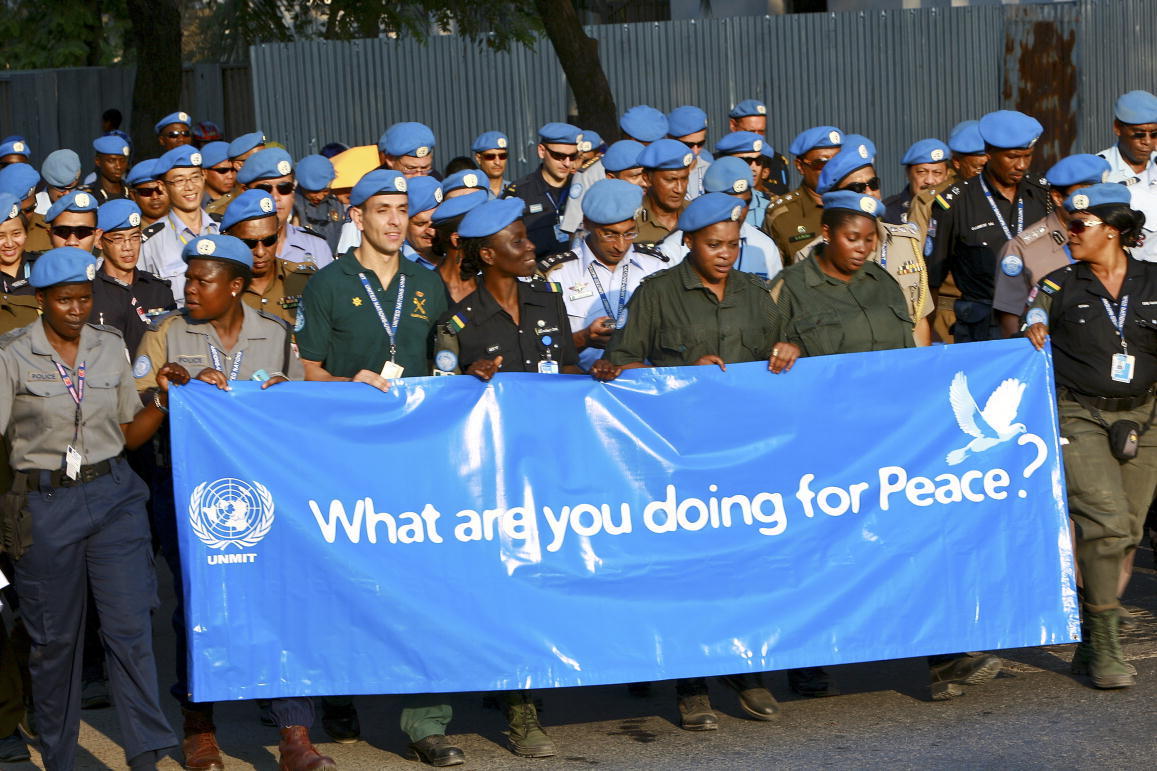Peacekeeping Is Power: United Nations Day

It was philosopher Immanuil Kant who saw salvation of Europe in unification of nations and joint execution of peacekeeping mission. After World War I, in 1920, the League of Nations was created; prevention of bloodshed in the world was placed on it as a solemn duty. But it turned out to be armless in the face of World War II. This is why on the morrow of the tragedy, that dragged 53 states into a massacre, United Nations Organization was founded.
According to the UN Charter actors in different countries promote reconciliation and mediation and, should this fail, apply sanctions and traditional military means. Photo beltandroad.news
Photo beltandroad.news
After having developed first peacekeeping mission in the Middle East in 1948, the UN held over 70 operations on solving social and political conflicts. Sadly, often peacekeepers give their lives in the name of global peace: thus, in 2005 124 people from 46 states died while executing operations. In its dangerous yet noble work UN peacekeeping forces adhere to the following principle: it takes putting weapons down and reaching any kind of agreement to resolve a conflict.
The UN played a significant role during Berlin crisis of 1948-1949 when winner states of the World War II divided Germany into 4 areas of influence. USSR, USA, United Kingdom and France, previously united by a common goal - fight with fascism - were then pursuing interests of their own. Using occupied territories, countries were manipulating each other longing to benefit in terms of geopolitical alignment of powers in Europe. America, that initially had no plans of providing Germany with economic aid, held monetary reform. In response Soviet troops, willing to call the parties to negotiations in this manner, blocked Western Berlin and cut routes of communication with West German territories. When Berlin faced a threat of humanitarian disaster, the UN intervened in the course of events. It resulted in elaboration of 'Occupational Statute' that granted United States, United Kingdom and France control over Western Germany. This is how Federal Republic of Germany was founded. It was then when the Soviet Union, in its turn, initiated creation of German Democratic Republic. Photo trade.gov
Photo trade.gov
Another episode resolved thank to UN’s interference was Caribbean missile crisis of 1962.
It was then when Soviet Union placed missiles with nuclear warheads on Cuba and President Kennedy imposed naval blockade of Cuba. Never before had nuclear war seemed so probable. To save the world from nuclear-thermal disaster Secretary General of the UN orchestrated Soviet-American negotiations. The outcome wasn’t long in coming: Soviet Union removed weapons from Cuban territory and USA called off the troops from Guantanamo military base.
One of the most large-scale conflicts that the UN had been attempting to settle for a decade, from 1965 to 1975, took place in the Middle East and resulted in confrontation between Arabic radicals in the territory Palestine and Israel. The war that Israel called ‘War of Independence’ and Palestinians named ‘Catastrophe’. For the first time the conflict surfaced in 1945 when Jewish agency that was representing interests of Palestine vocalized the need to create Jewish state. Population with Arabic roots wouldn’t concede: they believed it was important to preserve an ethnos within the limits of one state. The UN suggested two options of resolving contradictions: either creation of two independent states united into a single economic model or Jewish-Arabic federation. It was the latter plan that was approved by everyone but the League of Arab States and the Supreme Muslim Council who promised to do everything in their powers to prevent division of Palestine. This resulted in war in 1948 and it became possible to halt it under the auspices of the UN in early 1949 when cease-fire agreements were concluded. Consequently Israel occupied 112 inhabited localities allocated to Arab state while Arabs gained control over 14 settlements that belonged to Jews. After truce had been concluded Green Line was established to mark cessation of arms. Photo usip.org
Photo usip.org
And finally Yugoslavian tragedy when out of a prosperous state with high economic indicators the country drowned in internecine quarreling and civil war. Ethnic discrepancies in each republic were evidence to the fact that dissolution of the state was inevitable. With Milošević coming into power a conflict between the Serbs and Albanian population of Kosovo snowballed and led to the Albanians losing all the rights to territorial autonomy. Having failed to solve the problem by diplomatic means, people of Kosovo became involved in guerilla war. Acts of terrorism, gibbet law for Yugoslavian officials and inability to fight rebellion – this is what Yugoslavia looked like in the eyes of the West.
Reaction that followed was smashing: NATO bombardments erased whole regions from the face of Earth; half a million Albanians were left with no roof over their heads. And, no wonder, majority of victims were civilians, those who happened to be in a wrong time in a wrong place. Ultimately, Yugoslavian troops were withdrawn from Kosovo and control over the territory was transferred to the UN. Thus, since 1999 the United Nations Interim Administration Mission in Kosovo has been overseeing execution of legislation, restoring what had been destroyed and managing political processes.
As history shows, politicians who unleash a war, rarely take responsibility for what’s done while people who believe in ‘pretty’ ideas join ‘lost generations’. However politicians make up sooner or later: they have to live with it somehow and look into eyes of those who they considered enemies only the day before. In this context the words, that Charter of the UN begins with, acquire a special meaning: “We, the people of the United Nations, determined to save succeeding generations from the scourge of war, which twice in our lifetime has brought untold sorrow to mankind, and to reaffirm faith in fundamental human rights, in the dignity and worth of the human person, in the equal rights of men and women and of nations large and small, and to establish conditions under which justice and respect for the obligations…”
Cover photo thecanadianencyclopedia.ca





















